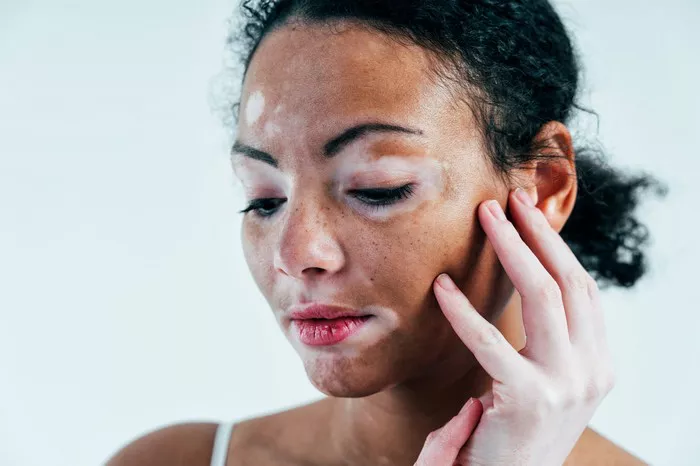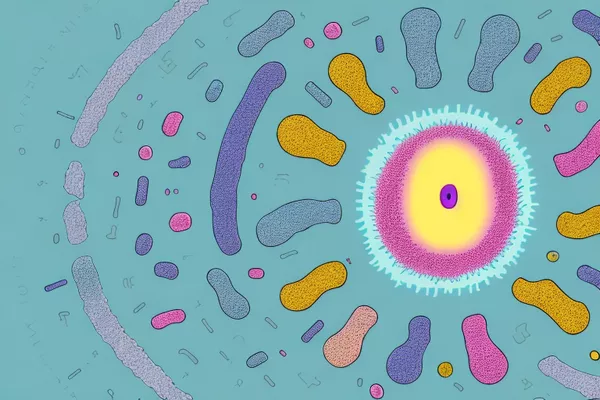Vitiligo is a chronic skin condition characterized by the loss of pigment cells (melanocytes) from the skin, leading to the development of white patches. This disorder can affect any part of the body, including hair and the inside of the mouth. Despite being relatively common, vitiligo’s exact cause remains unknown, and its progression can vary widely among individuals.
The Nature and Causes of Vitiligo
Vitiligo is considered an autoimmune disease, where the body’s immune system mistakenly attacks and destroys melanocytes, the cells responsible for producing melanin, the pigment that gives skin its color. Genetic predisposition plays a significant role, as vitiligo often runs in families. Environmental factors, such as skin trauma, sunburn, or exposure to certain chemicals, can trigger the condition in those who are genetically susceptible.
The disorder can present in various patterns:
- Focal vitiligo: limited to one or a few areas
- Segmental vitiligo: affecting only one side of the body
- Generalized vitiligo: the most common form, where white patches appear symmetrically on both sides of the body
- Universal vitiligo: extensive loss of skin color affecting almost the entire body
Can Vitiligo Stop Spreading on Its Own?
The progression of vitiligo is unpredictable. For some individuals, it may spread rapidly, while for others, it may remain static or even improve over time. Whether vitiligo can stop spreading on its own is a question that has intrigued both patients and researchers. The answer is complex and depends on multiple factors, including the type of vitiligo, the individual’s immune response, and external influences.
Factors Influencing the Spread of Vitiligo
1. Type of Vitiligo
Different types of vitiligo have different progression patterns. For instance, segmental vitiligo often progresses for a few years and then stops, whereas generalized vitiligo can continue to spread throughout a person’s life. Understanding the type of vitiligo is crucial in predicting its behavior.
2. Age of Onset
Vitiligo can develop at any age, but it most commonly appears before the age of 20. Early-onset vitiligo tends to be more aggressive, spreading more rapidly than vitiligo that appears later in life. However, this is not a hard and fast rule, as the disease’s progression can vary significantly among individuals.
3. Genetic Factors
Genetics play a significant role in vitiligo. If a person has a family history of the condition, they may be more likely to experience its spread. Researchers have identified several genes associated with vitiligo, many of which are related to the immune system’s function. However, possessing these genetic markers does not guarantee that vitiligo will spread; it simply indicates a higher risk.
4. Immune System Activity
Vitiligo is an autoimmune condition, so the activity of the immune system is a critical factor in its progression. Periods of heightened immune activity, such as during illness or stress, can trigger the spread of vitiligo. Conversely, when the immune system is more stable, the progression of vitiligo may slow down or halt.
5. Environmental Triggers
Environmental factors, such as sun exposure, can influence vitiligo’s progression. Sunburn can damage melanocytes, potentially exacerbating the spread of vitiligo. On the other hand, some patients find that moderate sun exposure can help stabilize their condition, as UV radiation can stimulate the remaining melanocytes to produce more melanin.
6. Psychological Stress
Stress is a well-known trigger for many autoimmune conditions, including vitiligo. High stress levels can exacerbate the spread of vitiligo, while managing stress through techniques such as mindfulness, meditation, and regular exercise can help stabilize the condition.
SEE ALSO:What to Avoid to Manage Vitiligo
Mechanisms of Vitiligo Stability
1. Natural Remission
In some cases, vitiligo can enter a phase of natural remission where the progression stops without any medical intervention. This phenomenon is not fully understood but is thought to be related to changes in the immune system’s activity. Some patients may even experience repigmentation of their skin, although this is relatively rare.
2. Immune System Equilibrium
The immune system’s balance plays a pivotal role in the progression of vitiligo. When the immune system is in equilibrium, it is less likely to attack melanocytes, which can lead to a stabilization of vitiligo. Factors that contribute to this balance include a healthy diet, regular physical activity, adequate sleep, and stress management.
3. Melanocyte Regeneration
Melanocytes have a limited ability to regenerate. In areas where these cells are not completely destroyed, they can repopulate and produce melanin, leading to a stabilization or even improvement in vitiligo. Treatments such as phototherapy can stimulate this regenerative process, but in some cases, it may occur naturally.
4. Medical Interventions
While some patients experience a natural halt in the progression of vitiligo, others may require medical interventions to achieve stability. Treatments such as corticosteroids, calcineurin inhibitors, and phototherapy can help control the spread of vitiligo. These treatments work by suppressing the immune system’s attack on melanocytes or by stimulating melanocyte activity.
Case Studies and Research Findings
1. Clinical Studies
Several clinical studies have explored the natural course of vitiligo. A long-term study conducted by the National Institutes of Health (NIH) followed patients with vitiligo over several decades. The study found that about 10-20% of patients experienced spontaneous repigmentation or stabilization of their condition without any treatment. However, the majority of patients had a progressive course, emphasizing the variability of the disease.
2. Patient Case Reports
Individual case reports provide insight into the diverse experiences of people with vitiligo. Some patients report periods of rapid spread followed by years of stability, while others experience a slow, steady progression. These case reports highlight the importance of personalized approaches to managing vitiligo, as the disease’s behavior can differ greatly from person to person.
3. Genetic and Immunological Research
Advances in genetic and immunological research have shed light on the mechanisms underlying vitiligo. Studies have identified specific genetic variants associated with an increased risk of vitiligo, many of which are involved in immune system regulation. Research into the immune system’s role has revealed that certain cytokines and immune cells are involved in the destruction of melanocytes, providing potential targets for new treatments.
Management Strategies for Vitiligo
1. Lifestyle Modifications
Lifestyle changes can play a significant role in managing vitiligo. Protecting the skin from sunburn, maintaining a balanced diet rich in antioxidants, and managing stress can all contribute to stabilizing the condition. Patients are encouraged to use sunscreen regularly and to seek shade during peak sun hours to prevent skin damage.
2. Medical Treatments
A variety of medical treatments are available for vitiligo, aimed at controlling its spread and promoting repigmentation. These include:
- Topical Corticosteroids: These anti-inflammatory creams can help reduce immune system activity in the skin, slowing the spread of vitiligo.
- Calcineurin Inhibitors: These medications, such as tacrolimus and pimecrolimus, can be used as an alternative to corticosteroids, especially on sensitive areas like the face.
- Phototherapy: Narrowband UVB therapy is a common treatment that can stimulate melanocyte activity and promote repigmentation. It requires regular sessions over several months to see significant results.
- Depigmentation: For extensive vitiligo, depigmentation of the remaining pigmented skin can create a more uniform appearance. This treatment is irreversible and is typically considered only for severe cases.
3. Emerging Therapies
Research into new treatments for vitiligo is ongoing. Some promising areas include:
- JAK Inhibitors: These medications target specific pathways in the immune system and have shown promise in early clinical trials for treating vitiligo.
- Stem Cell Therapy: Experimental treatments using stem cells aim to regenerate melanocytes and restore pigmentation.
- Gene Therapy: Advances in gene editing technologies, such as CRISPR, hold potential for correcting the genetic mutations associated with vitiligo, although this research is still in its early stages.
Psychological Support and Coping Mechanisms
Vitiligo can have a significant psychological impact, affecting self-esteem and quality of life. Psychological support is an essential component of managing the condition. Counseling, support groups, and online communities can provide valuable emotional support and coping strategies for those living with vitiligo.
Conclusion
Vitiligo is a complex and variable condition with an unpredictable course. While some individuals may experience a natural halt in its progression, others may require medical interventions to achieve stability. Understanding the factors that influence the spread of vitiligo, such as the type of vitiligo, genetic predisposition, immune system activity, and environmental triggers, can help in managing the condition effectively.
Ongoing research into the genetic and immunological aspects of vitiligo continues to provide new insights and potential treatments, offering hope for better management and eventual cure. In the meantime, a combination of lifestyle modifications, medical treatments, and psychological support can help individuals with vitiligo lead fulfilling lives despite the challenges posed by the condition.
Related Topics:

























